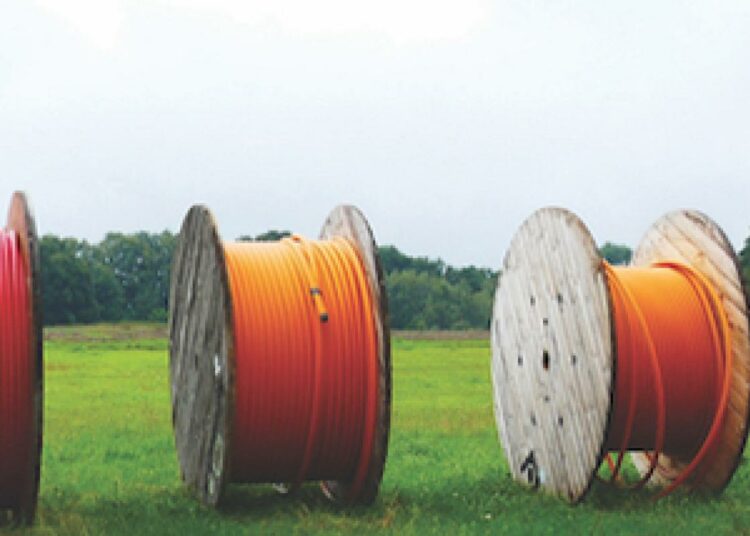Nigeria’s ambition to build a $1 trillion economy depends on €1.05 billion in data center investment, a 90,000-kilometer fiber optic expansion, and a 10 percent broadband penetration boost that could add 2.5 per cent to GDP, industry experts revealed.
Industry stakeholders who disclosed this, at the Policy Implementation Assisted Forum (PIAFo), in Lagos, stressed that robust broadband, cybersecurity, and stable power are crucial for digital economic growth.
CEO of Open Access Data Centre (OADC), Dr. Ayotunde Coker, at a panel session on data center risks within the Critical National Information Infrastructure (CNII) framework, moderated by the assistant business editor at The Guardian Newspaper, Yemi Adepetun, highlighted the fundamental role of digital infrastructure in driving economic growth. He pointed out that connectivity, data centers, and power must be aligned to ensure digital resilience.
Coker acknowledged Nigeria’s recent progress in restoring connectivity through increased subsea cable capacity, citing Meta’s new subsea cable project as a significant boost to global connectivity. However, he stressed the urgency of upgrading outdated subsea cables and fast-tracking infrastructure projects such as the Equiano and 2Africa cables.
With the government’s plan to expand fibre optic capacity by 90,000 kilometers, Coker emphasised the direct economic impact of broadband penetration, stating that a 10 percent increase could contribute 2.5 per cent GDP growth. He also noted that while South Africa houses 50 percent of Africa’s data center infrastructure, Nigeria must scale up investments to bridge the gap and compete on a global level.
“The future of our digital economy depends on the seamless integration of connectivity, power, and data centers,” Coker asserted, calling for greater collaboration between private and public stakeholders.
CEO of Rack Centre, Lars Johannisson echoed Coker’s sentiments, applauding Nigeria’s digital progress but warning that execution remains a major hurdle. He highlighted asset protection policies as a key factor in attracting foreign investments.
Johannisson revealed that every megawatt of data center capacity requires an investment of approximately €12-15 million, with 70 megawatts currently in the pipeline.
This translates into a total investment range of: €840 million (€12 million × 70MW) on the lower end and €1.05 billion (€15 million × 70MW) on the higher end.
Johannisson also stressed the importance of decentralising data centers beyond Lagos to ensure broader access and affordability, especially with the pressing need for edge infrastructure which requires data centre spread across the country. “If inefficiencies drive up costs, digital services will remain inaccessible to large segments of the population,” he warned.
Looking ahead, Johannisson emphasized the need to maintain cost-effective infrastructure investments to achieve Nigeria’s broadband penetration target of 80 per cent by 2030.
Meanwhile, director of Legal (Global and Regional Business Affairs) at Equinix, Abayomi Adebanjo focused on the intersection of digital infrastructure and national security. He underscored the vulnerability of critical networks to cyber threats and called for stricter security measures at both physical and digital levels.
Adebanjo also identified major gaps in Nigeria’s Critical National Information Infrastructure (CNII) framework, urging the government to take a more active role in enforcing protection programs. He cited persistent issues such as fiber cable theft and legal obstacles in prosecuting offenders as deterrents to investment.
Recognising the significant power demands of data centers—comparable to large industrial operations such as the Dangote refinery—Adebanjo advocated for incentives such as designated special zones for data centers and priority access to electricity. “Ireland is a prime example of how a stable regulatory and power supply environment can attract foreign direct investment,” Adebanjo noted, urging Nigerian policymakers to adopt similar strategies.
In his opening remarks, convener of PIAFo, Omobayo Azeez, stressed the need for concerted efforts among stakeholders to protect existing infrastructure and attract new investments to secure the digital future of the country.
The discussions at PIAFo underscored that Nigeria’s ambition to achieve a $1 trillion economy hinges on its ability to create a conducive environment for data centers and digital infrastructure growth.
We’ve got the edge. Get real-time reports, breaking scoops, and exclusive angles delivered straight to your phone. Don’t settle for stale news. Join LEADERSHIP NEWS on WhatsApp for 24/7 updates →
Join Our WhatsApp Channel










